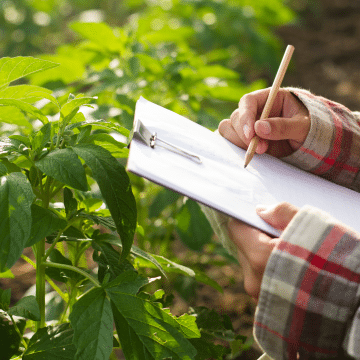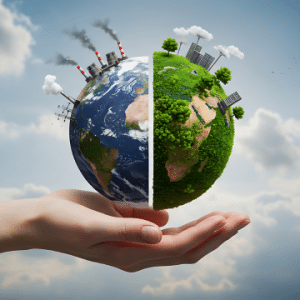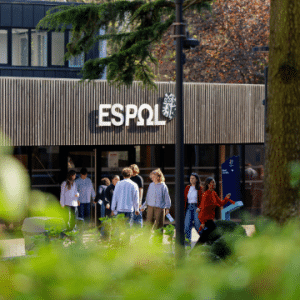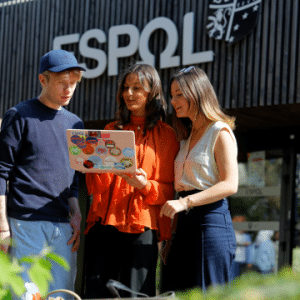DEMETRA, a EU Horizon Europe research project in which ESPOL is a partner, explores how democracy and sustainability come together to transform our food systems.
The DEMETRA Project: Democracy and Sustainability in Action

Food is everywhere: in our homes, land, memories, and traditions. We all eat several times a day, yet the ways food is produced, accessed, and governed reveal profound inequalities and power dynamics. Food is not just about nutrition — it is about livelihoods and work, water and energy, health and well-being, nature and culture, relationships and justice. At its core, food functions as a critical nexus, a nodal point where multiple sectors and actors intersect. It connects agriculture, health, urban planning, social services, environmental management, and citizen participation.
Our global food system is responsible for around one-third of the world’s greenhouse gas emissions, making its transformation one of the most powerful levers in the fight against climate change. Yet food is more than an environmental challenge, it is also a source of connection. Shared meals, cultural traditions, and local initiatives show how food can bring communities together and inspire collaborative action.
In food transformation processes, cities are increasingly emerging as laboratories of change — spaces where innovative food strategies and policies are designed, tested, and refined. However, recent farmers’ protests and citizens’ mobilizations have made it clear that these transitions must be inclusive and fair. The central challenge is to transform food systems without leaving anyone behind.
DEMETRA, an EU Horizon Europe research project, explores how democratic governance can effectively support the urgent transition toward sustainability. At a time when societies face mounting environmental and climate pressures, DEMETRA investigates how citizen participation can drive sustainability transformation in local food systems — and how to empower all actors, from producers to consumers, to shape a just and resilient future.
Spanning seven European countries — Estonia, France, Germany, Italy, Sweden, Switzerland, and the United Kingdom — DEMETRA investigates how deliberative and participatory processes (DPPs) can bring together citizens, public institutions, civil society organizations and private actors to make collective decisions for more sustainable food systems.
Using a comparative, cross-national, and mixed-methods approach, the project examines democratic participation at multiple levels: the macro (institutional frameworks and policies), meso (organizational practices and networks), and micro (individual engagement and lived experiences). This multi-scalar perspective helps capture the complexity of how participation shapes — and is shaped by — real-world food policies and alternative food initiatives. By focusing on food as a nexus within ecological transformations, DEMETRA seeks to identify best practices for inclusivity and citizen empowerment within food systems, offering practical insights for policymakers and practitioners striving to create just and sustainable food systems.
Building on these insights, DEMETRA also works to translate research into real-world change. The project fosters dialogue and co-creation through living labs, targeted communication activities, policy briefs, and a digital magazine: DEMETRA Digest Voices in Democratic and Sustainable Food Systems. Ultimately, DEMETRA aims to develop new tools and actionable strategies for democratic governance, showing how food system transformation can be pursued not only effectively, but also collectively — by bringing everyone to the table.
The Lille team at ESPOL (Francesco Maria Betti, Sofia Collados, and Sabine Weiland) is currently leading the fourth stage of the DEMETRA project. Work Package 4 investigates how food policies and policymaking processes take shape in urban contexts.
By mapping urban food policies across the seven DEMETRA cities in Europe (Bologna, Brighton, Cologne, Geneva, Lille, Tartu, Uppsala) and engaging with a wide range of political actors — from municipal institutions to civil society organizations — the researchers seek to understand how cities are building more sustainable food systems through public policies. The research also explores the tensions, trade-offs, and opportunities within urban food systems, asking how food policy can serve as a lever for more sustainable, just, and participatory futures.
Stay tuned for the WP4 deliverable and synthesis report, to be released in early 2026. Learn more about the project: https://www.qmul.ac.uk/demetra/project/




